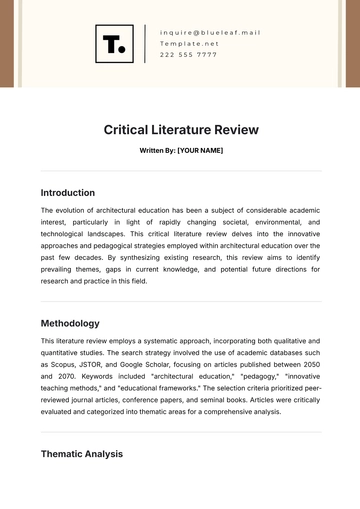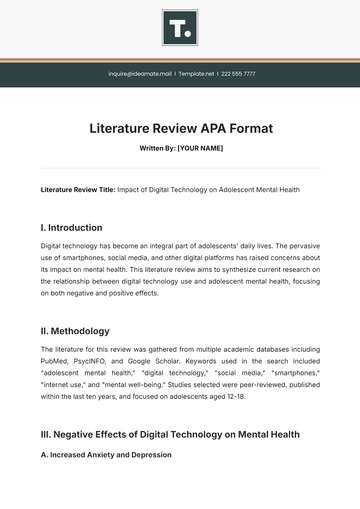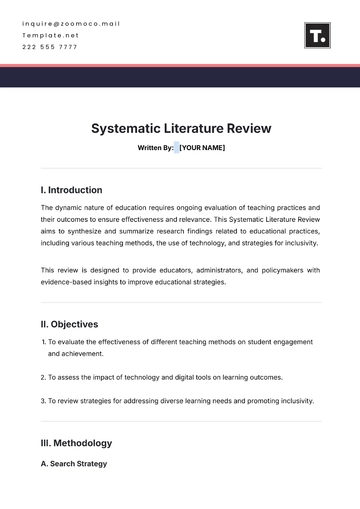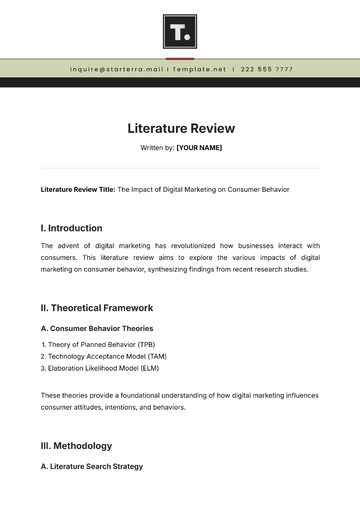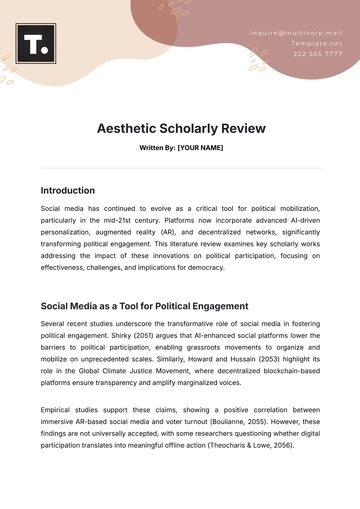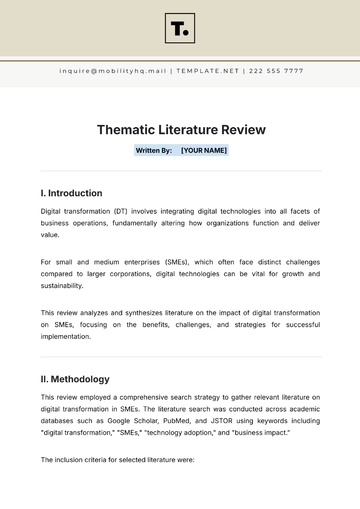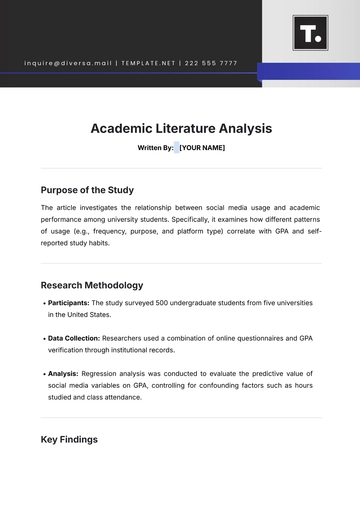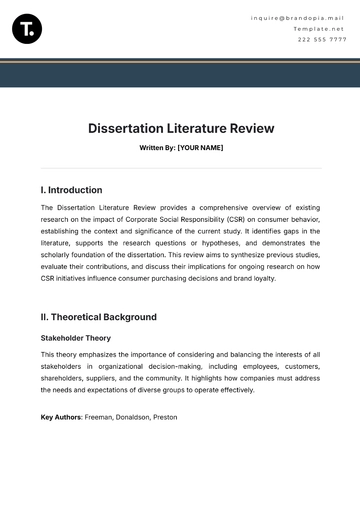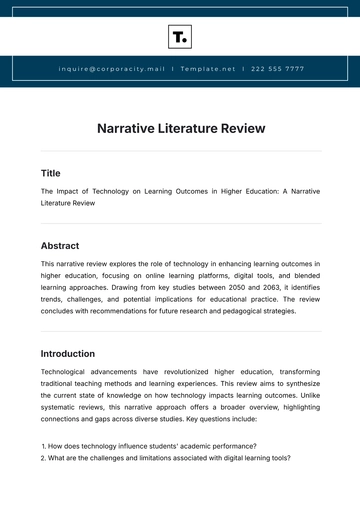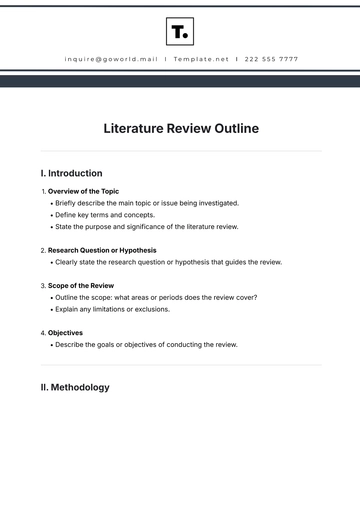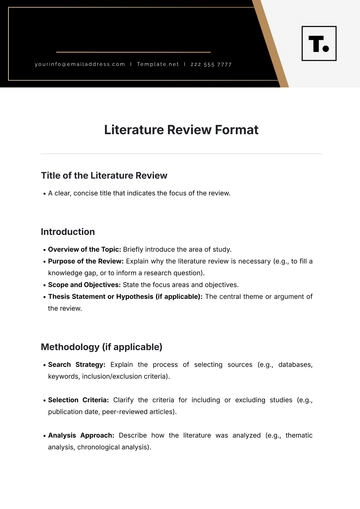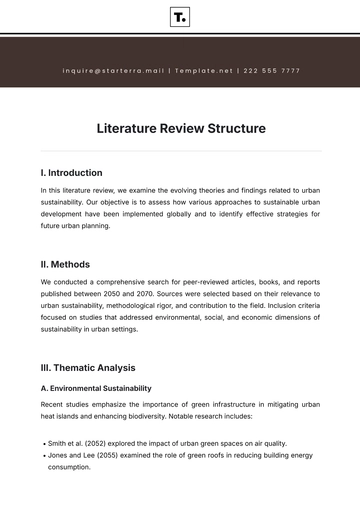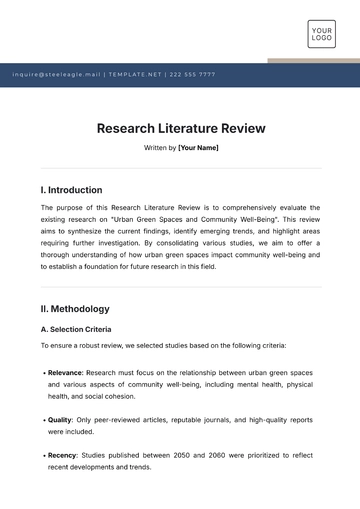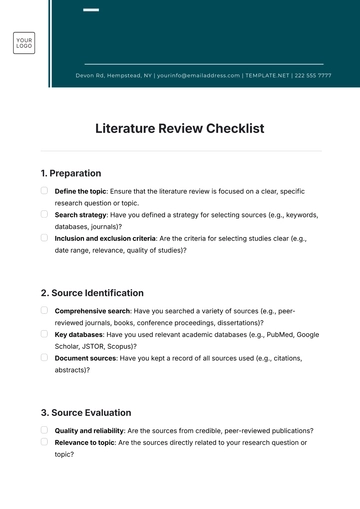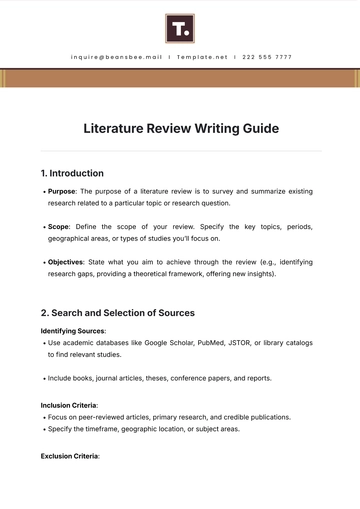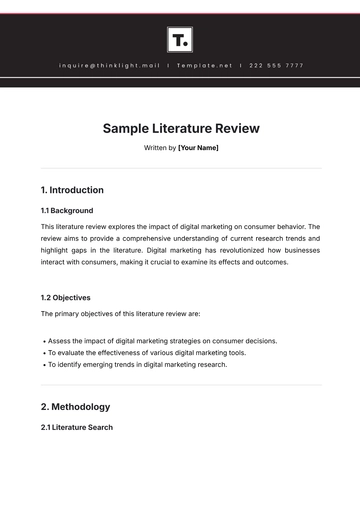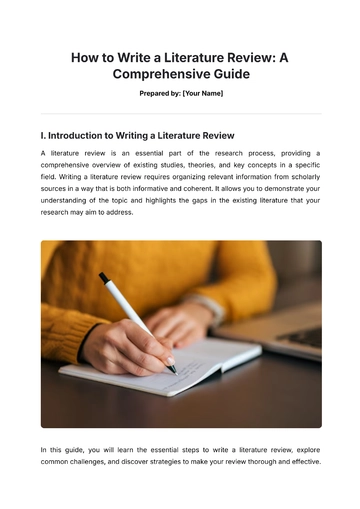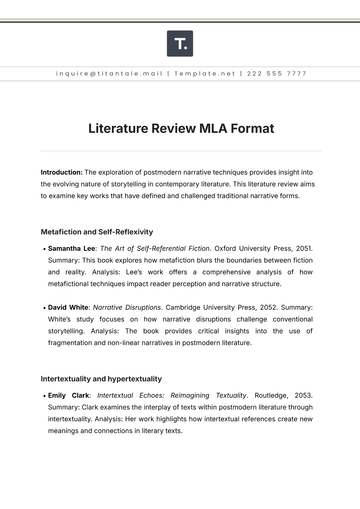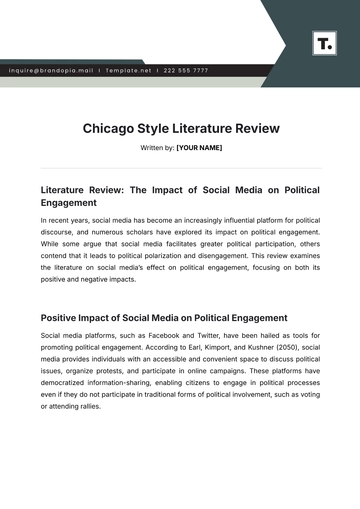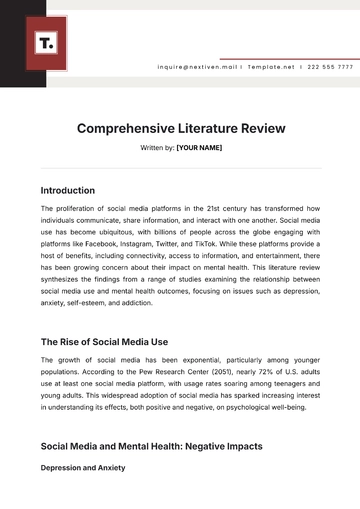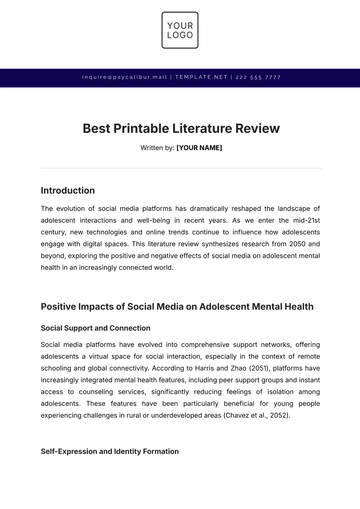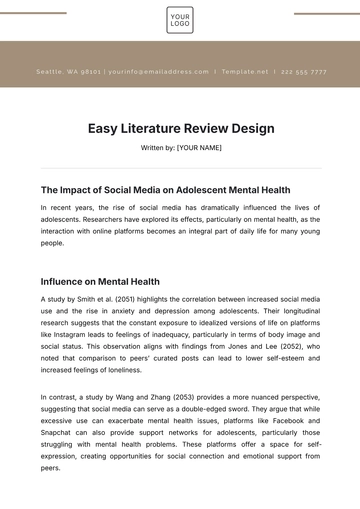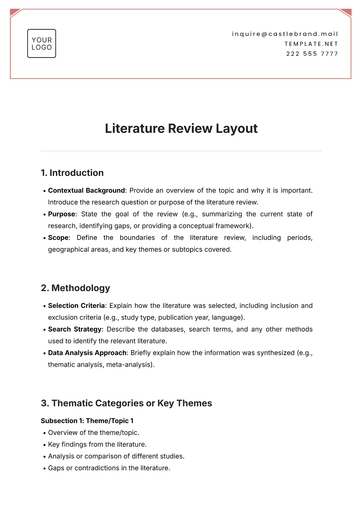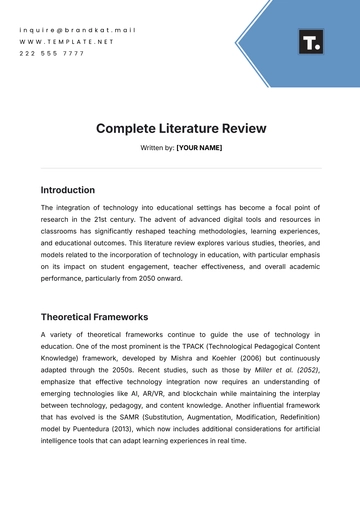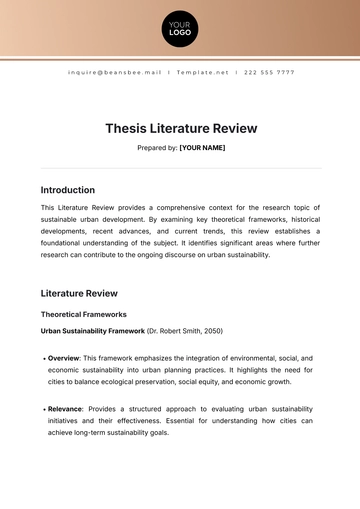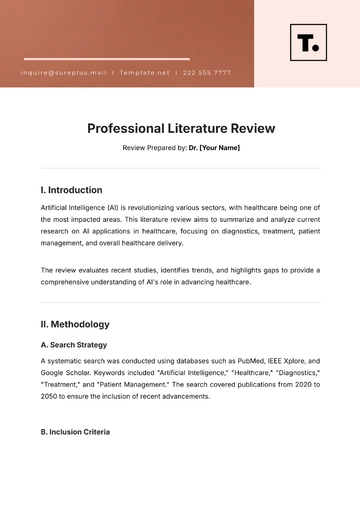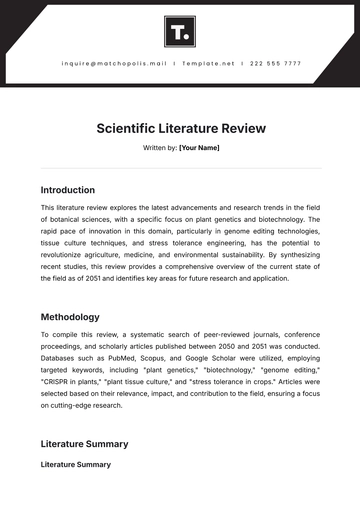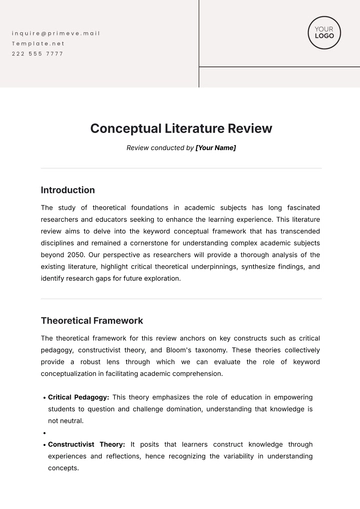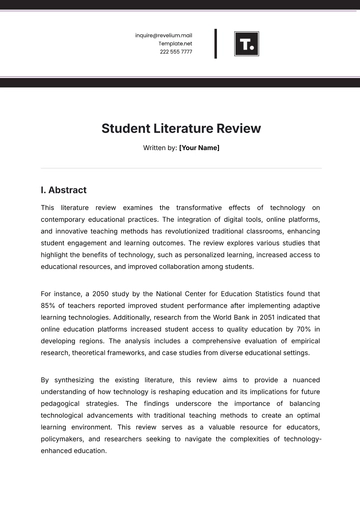Free Narrative Literature Review
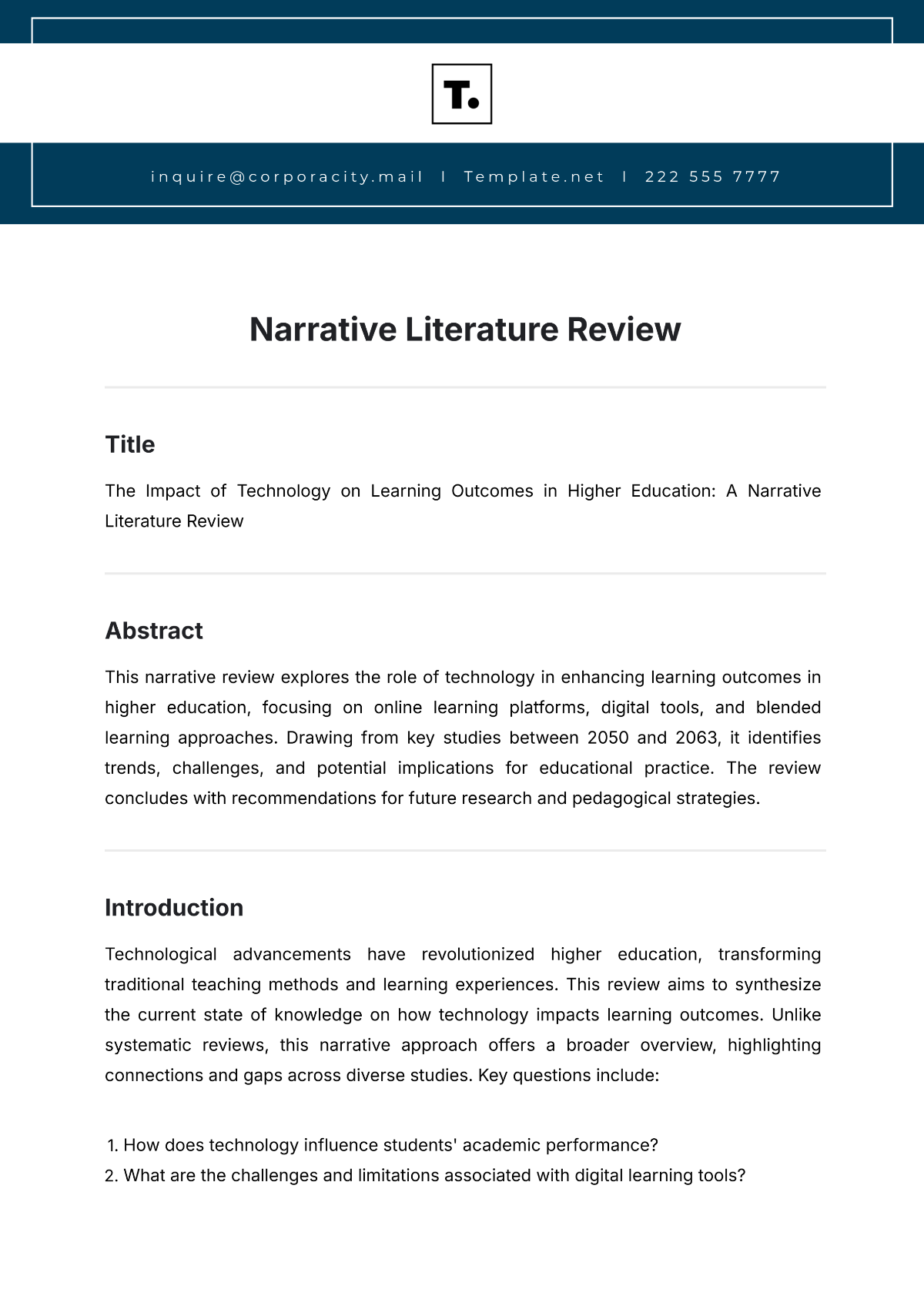
Title
The Impact of Technology on Learning Outcomes in Higher Education: A Narrative Literature Review
Abstract
This narrative review explores the role of technology in enhancing learning outcomes in higher education, focusing on online learning platforms, digital tools, and blended learning approaches. Drawing from key studies between 2050 and 2063, it identifies trends, challenges, and potential implications for educational practice. The review concludes with recommendations for future research and pedagogical strategies.
Introduction
Technological advancements have revolutionized higher education, transforming traditional teaching methods and learning experiences. This review aims to synthesize the current state of knowledge on how technology impacts learning outcomes. Unlike systematic reviews, this narrative approach offers a broader overview, highlighting connections and gaps across diverse studies. Key questions include:
How does technology influence students' academic performance?
What are the challenges and limitations associated with digital learning tools?
Methodology
The review adopts a narrative approach, analyzing peer-reviewed articles, conference proceedings, and reports from 2050 to 2063. Keywords included "technology in education," "online learning," and "blended learning." Sources were selected based on relevance to higher education and their focus on learning outcomes.
Findings and Discussion
1. Online Learning Platforms
Studies Reviewed:
Smith et al. (2055) found that students in fully online programs achieved comparable results to those in traditional classrooms, provided they had access to quality instructional design and support.Challenges Identified:
Poor engagement and lack of digital literacy were highlighted by Johnson (2059) as barriers to effective online learning.
2. Blended Learning Approaches
Effectiveness:
Blended learning models, combining online and face-to-face instruction, were consistently associated with higher student satisfaction and performance (Brown, 2057).Innovative Practices:
Adaptive learning technologies, such as AI-based platforms, have shown promise in personalizing content and pacing (Garcia, 2061).
3. Use of Digital Tools
Key Insights:
Gamification and collaborative tools, such as virtual whiteboards, were found to enhance engagement and critical thinking (Taylor & Lee, 2062).Equity Concerns:
Access to digital tools remains uneven, disproportionately affecting students from lower socioeconomic backgrounds (Hernandez, 2054).
Conclusion
Technology offers significant potential to improve learning outcomes in higher education but is not without its challenges. Effective implementation requires addressing equity issues, ensuring proper training, and integrating pedagogically sound practices. Future research should explore long-term impacts and the role of emerging technologies like VR and AR.
References
Brown, J. (2057). Blended Learning in Higher Education: A Comprehensive Overview. Educational Technology Review, 25(3), 45-59.
Garcia, M. (2061). Personalization in Learning: The Role of AI-Based Technologies. Journal of Digital Education, 32(1), 10-25.
Hernandez, L. (2054). Digital Equity in Higher Education. Global Education Journal, 18(2), 35-42.
Johnson, P. (2059). Barriers to Online Learning: A Student Perspective. E-Learning Studies, 28(4), 85-102.
Smith, A., Taylor, B., & Wong, K. (2055). Online Learning Outcomes in Higher Education. Learning Science Journal, 19(2), 120-135.
Taylor, C., & Lee, D. (2062). Enhancing Student Engagement through Gamification. TechEd Quarterly, 22(1), 50-72.
- 100% Customizable, free editor
- Access 1 Million+ Templates, photo’s & graphics
- Download or share as a template
- Click and replace photos, graphics, text, backgrounds
- Resize, crop, AI write & more
- Access advanced editor
Craft compelling reviews with Template.net’s Narrative Literature Review Template. Customizable and editable, this template is designed to document comprehensive narrative reviews in a structured format. Editable in our AI Editor Tool, it’s suitable for academic, research, or professional use. Tailor it effortlessly to your project requirements. Download this versatile template to streamline your review process and create detailed, professional narrative literature reviews with ease.
